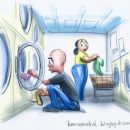What is change? Most agree that “change” is the only permanent aspect of the universe.
Scientists acknowledge that matter changes — matter is the elementary substance of life. Evolutionary biologists tell us that our survival as a species, has depended on genetic changes. Over the ages, humans have had to adapt to a constantly changing environment.
And on the individual level, from the moment we’re born and throughout life, our physical body is undergoing constant change. So, we seem to have no problem accepting change as a fact of life.
Or do we? When it comes to the nature of the mind and human behavior change – its a different story.

World Philosopher
Jiddu Krishnamurti
It’s hard to change that aspect of who we are. That’s the challenge of change. Many of us think it’s too impractical or demanding. And when we do change occasionally, it seems most often – it’s a response to events or at the urging of others.
The 20th Century Indian and World Philosopher Krishnamurti – said it this way: “We must see the importance and absolute necessity of change. Changing ourselves in relationships, in our activities and in the process of our thinking. We all desire to help the world, but we never begin with ourselves.”
Think about it. Trying to change society while leaving individuals who make up society “unchanged”, is not only unproductive, it’s naïve.
Krishnamurti goes on to say “We want to reform the world, but the fundamental change must first take place within ourselves.” This means “…a change in our orientation, in our outlook, in our values, in our contacts, in the manner of our behavior and in the way of our thinking.”
No place is this more important than in regard to behavior change.

American Philosopher
Kenneth Burke
“Stories are instruments of change.” That was said by American philosopher Kenneth Burke. I agree with him and Krishnamurti.
Stories are capable of driving change in us. We are moved by them and make sense of our world through them. They can initiate change in our families and relationships. They can change understanding in our patients, customers and clients.
Stories open the door to the possibility. They enable us to be receptive to different viewpoints, to the lessons of others and to the value of making changes in our behavior.
In fact, stories may be the most effective way into the mind that will get us to even consider changing at all.
Since change is a fact of life perhaps you should help it happen with a story. You may go a lot farther with whatever you are trying to change. Something to consider.










Comments are closed.